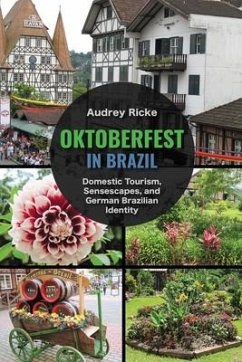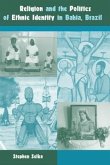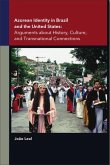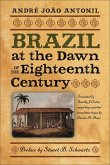"Oktoberfest in Brazil: Domestic Tourism, Sensescapes, and German Brazilian Identity is one of the first ethnographies to critically analyze Brazil's European-heritage tourism industry. Southern Brazil's booming domestic tourism industry draws more than 500,000 people to events such as Oktoberfest in Blumenau, the site of Audrey Ricke's fieldwork. Ricke's unique contribution is investigation of domestic tourism as "sensescapes" for citizens of different regions and backgrounds. The sensescapes concept encapsulates an experience beyond the visual. Ricke also introduces the economy of aesthetics framework to capture how the sensescapes associated with domestic tourism are mobilized to negotiate ethnic, national, and transnational identities. The pathway through such sensescapes involves intersections with discourses on class and race as well. Case studies are the German Brazilian home garden/landscape, Oktoberfest, and folk dancing. These sensory-rich "contact zones" provide access to different perspectives and types of identity negotiation at multiple levels. Ricke analyzes each practice to show how they emanate a German Brazilian warmth, joy, and welcome, which counter an image of Germans being cold and aloof and align better with national imaginaries of being Brazilian. This book also provides historical and contemporary insights into the politics of citizenship associated with cultural heritage. As politics become more polarized in Brazil and elsewhere, Ricke notes that the need to find new means of communication, such as sensory experiences from domestic tourism, increases. Through identifying how this takes place, such understanding can highlight the strengths and weaknesses of tourism ventures for promoting inclusion and national belonging and contribute to the design of equity and inclusion policies"--
Hinweis: Dieser Artikel kann nur an eine deutsche Lieferadresse ausgeliefert werden.
Hinweis: Dieser Artikel kann nur an eine deutsche Lieferadresse ausgeliefert werden.








